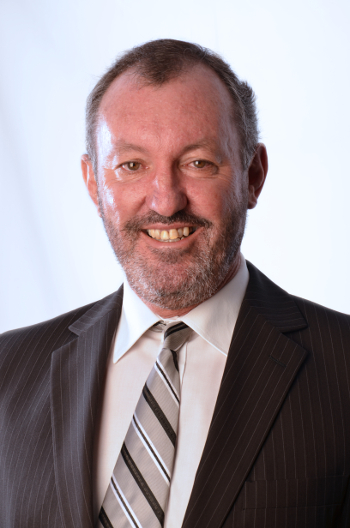Latest News Archive
Please select Category, Year, and then Month to display items
12 January 2024
|
Story Nonsindiswe Qwabe
|
Photo Sonia Small
 Since joining the UFS in 2008, Dr Grey Magaiza has worked extensively on approaches that can foster the socio-economic transformation of societies.
Since joining the UFS in 2008, Dr Grey Magaiza has worked extensively on approaches that can foster the socio-economic transformation of societies.
“The future should be one where communities can decide on their development agenda and futures. That’s the most important for me.” Dr Grey Magaiza, Deputy Director of the Centre for Gender and Africa Studies (CGAS) and Head of the Community Development programme on the Qwaqwa Campus, is passionate about capacitating communities to be agents of change and advancement. His vision for the future emphasises the empowerment of communities to take charge of their development by actively participating in decision making and the implementation of development projects that can improve their lives.
Since joining the UFS in 2008, Dr Magaiza has worked extensively on approaches that can foster the socio-economic transformation of societies. Over the years, he has crafted his research speciality into one that he is most proud of – being an interdisciplinary scientist immersed in the development of communities.
“I’m in a fortunate position of researching what I like. I say ‘fortunate’, because I’ve taken the time to understand what I’m passionate about, which is the overall field of rural livelihoods and livelihood futures – in short, community development. My research starts from an engaged university, understanding the elements that a university must use to enhance transformation and relevance to its immediate community in terms of development.”
One of the ways he has done this is by looking at social entrepreneurship as a development approach for young people in a rural setting. Through workshops with non-profit and civic organisations in Qwaqwa, Dr Magaiza has been helping these organisations to map out their needs and actively meet them through the involvement and support of external role players.
“We understand that communities are part of the national development agenda, but even that national agenda respects community knowledge and intentions and allows communities to shape their identity. A critical enabler of this is community organising. You bring back the capacity in communities to have dialogues on issues affecting them as spaces for engagement, knowledge exchange, and for people to just talk about their way forward.”
By enabling communities to define their development agenda, they can address their specific needs, challenges, and aspirations, he said. “When I look at livelihood futures, it’s quite an exciting aspect of my work – it’s like looking into a fortune tellers’ globe, because you’re not deciding for communities what they should do, but the communities themselves take those decisions.”
Judge Ian van der Merwe unanimously re-elected as Chairperson of the UFS Council for a third term
2015-09-23

Judge Ian van der Merwe |
The Council of the University of the Free State (UFS) unanimously re-elected Judge Ian van der Merwe as its Chairperson for another three years at its meeting on Friday 11 September 2015, which took place on the Bloemfontein Campus.
Judge Van der Merwe serves as Judge of the Free State High Court. He is an alumnus of the UFS and has been a member of the Council since 9 March 2007.
In accepting his re-election, Judge Van der Merwe said that he was honoured and grateful for the support. “I will do my best not to disappoint the Council and will do what is in the best interest of the UFS,” he said.
“The UFS is privileged to have in the person of Judge Van der Merwe a man of great public standing and a wealth of experience in the governance of universities, to continue to lead the Academic and Human Projects of the institution at such a critical moment in the history of South Africa”, said Prof Jonathan Jansen, Vice-Chancellor and Rector of the UFS.
Judge van der Merwe was elected as Chairperson of the UFS Council during a meeting on 20 November 2009 and was unanimously re-elected for a second term on 16 November 2012. His third term will commence on 1 January 2016.